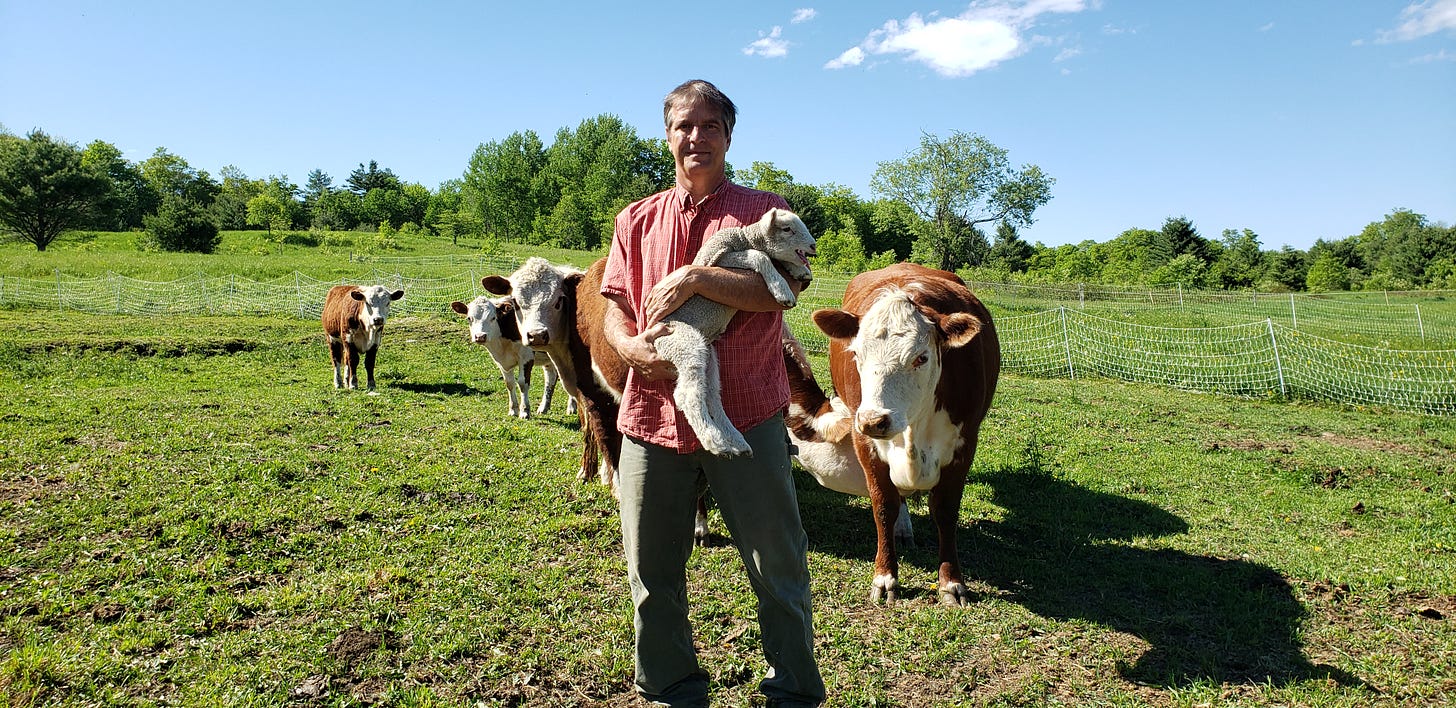There is a peculiar instinct that farmers develop in animal husbandry that is almost purely subconscious. Certainly, all professions include certain instincts that become refined with practice—a plumber can hear a certain gurgle, or a mechanic a particular knock or grinding, that is almost uncanny to the unlearned. Doctors develop instincts that assist in diagnosis and treatment; attorneys to discern when someone is lying; truck drivers, a distant flicker of movement in the roadway. Raising animals develops its own range of instinctual triggers.
My leap into farming was quite drastic. I had worked hard as a blue-collar worker throughout my youth, including as a foundation laborer and factory worker, but for about a decade, I had been practicing law. But in 1997, I became quite ill, with what was later diagnosed as Lyme Disease. I moved to Vermont to farm, to try to keep physically active and still earn a livelihood.
Twenty-five years later, I have come to marvel at how many unconscious assessments I take of my animals daily. I was reminded of this by a recent experience with a lamb.
Keep reading with a 7-day free trial
Subscribe to Small Farm Republic to keep reading this post and get 7 days of free access to the full post archives.





